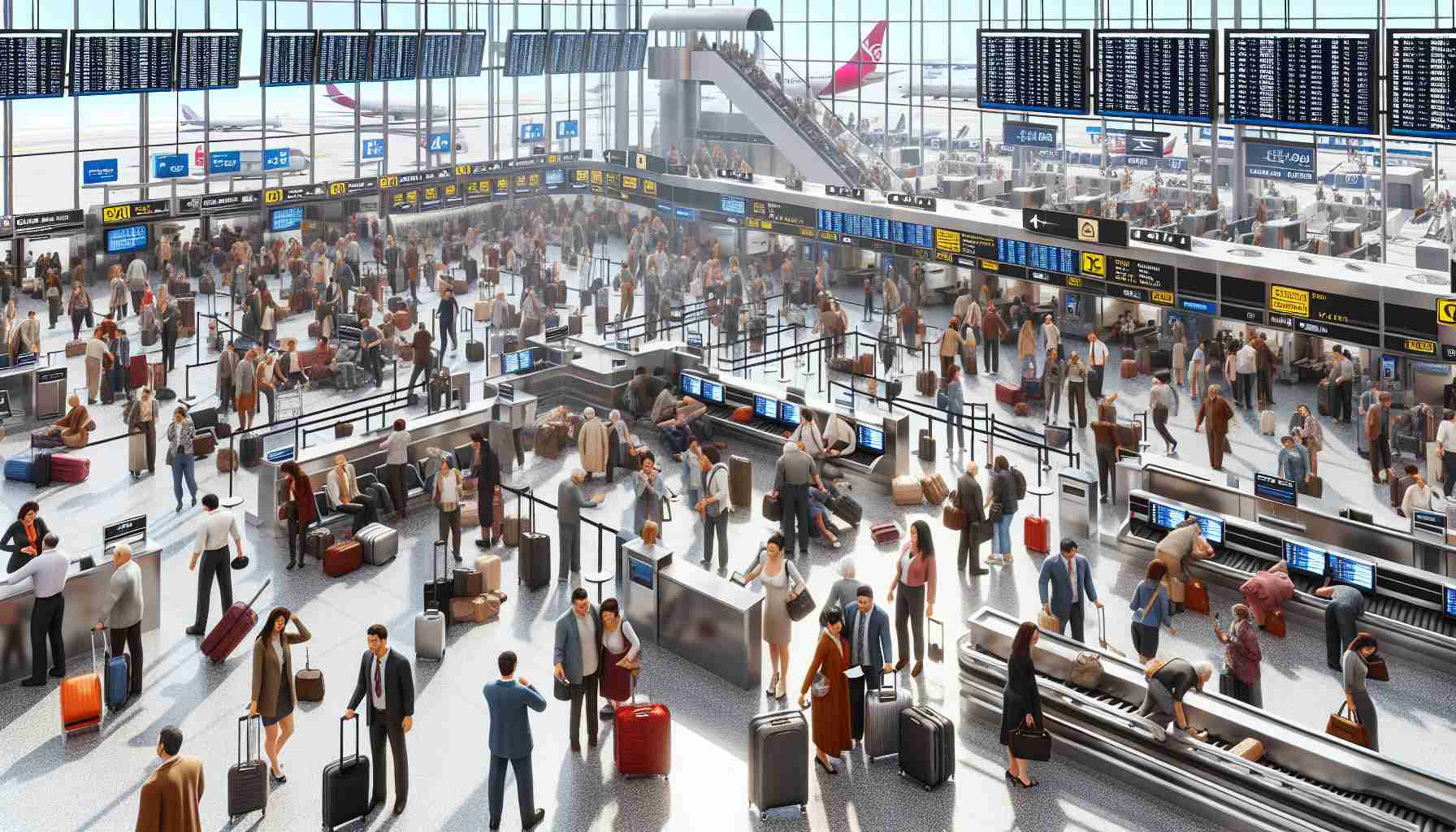Flight Disruption Across the Globe
Up to four individuals are now manually handling the taxing process of flight bookings due to a worldwide technical glitch that has crippled airport systems, including Valencia’s. The 250 scheduled flights for today in Valencia are at risk of delays, with airport authorities scrambling to minimize the impact on travelers.
Unprecedented Airport Complications
Parking barriers are lifted, offering free services temporarily due to the system failure. Additional staff have been deployed at check-in counters, expediting procedures to mitigate queues and minimize disruptions for passengers.
Travelers Face Uncertainties
Passengers like Luisa Raigón embark on her vacation to Santiago, cautiously navigating through unforeseen delays caused by the digital era’s vulnerabilities. As the aviation industry grapples with the fallout, operational teams assure passengers of ongoing efforts to alleviate inconveniences.
Global Tech Meltdown
A critical Microsoft software malfunction has unleashed chaos in airports, airlines, financial institutions, government bodies, and retail stores worldwide. Spain joins the list of nations grappling with flight cancellations and delays during holiday season, attributing the crisis to a suspected glitch in Microsoft’s personal computer operating systems.
International Air Travel Crisis
The technical upheaval initiated in the United States and Australia rippled across Europe, disrupting major carriers like Delta, United, and American Airlines. Operations at airports in Germany, the UK, France, and other affected countries ground to a halt, amplifying the urgency for a prompt resolution to the escalating global aviation crisis.
Systemic Issues Behind Global Airports Computer System Meltdown
The recent global airport chaos caused by a computer system meltdown has shed light on deeper systemic issues plaguing the aviation industry. As the world grapples with the aftermath of disrupted flight operations, several important questions and challenges emerge:
Key Questions:
1. What are the vulnerabilities in the current airport computer systems that make them susceptible to such widespread failures?
2. How can airports better prepare for and respond to technical glitches to minimize passenger disruptions?
3. Is there a need for increased collaboration and coordination among tech companies, airlines, and government agencies to prevent future systemic failures?
Answers and Insights:
– The reliance on outdated software and lack of robust backup systems have been identified as key factors contributing to the recent chaos.
– Implementing regular system checks, investing in updated technology, and establishing contingency plans are crucial steps to enhance system resilience.
– Enhanced communication and information sharing between stakeholders are essential to improving crisis response and management in the aviation sector.
Challenges and Controversies:
– Balancing the need for efficient digital systems with the risks of potential system failures poses a significant challenge for the aviation industry.
– The debate over who bears responsibility for ensuring the stability and security of airport computer systems remains a contentious issue.
– The pressure to quickly restore normal operations while ensuring passenger safety and satisfaction presents a complex dilemma for airport authorities and airlines.
Advantages and Disadvantages:
Advantages:
– The recent crisis has highlighted the urgency of investing in technology upgrades and cybersecurity measures to safeguard against future disruptions.
– Improved coordination and cooperation among industry stakeholders can lead to a more resilient and responsive aviation system.
Disadvantages:
– The financial costs associated with upgrading technology and implementing comprehensive backup systems may pose a burden on already struggling airlines and airport operators.
– The reputational damage inflicted by such large-scale disruptions can take a toll on customer trust and confidence in air travel services.
For more information on aviation industry updates and technological advancements, visit Aviation Week.
